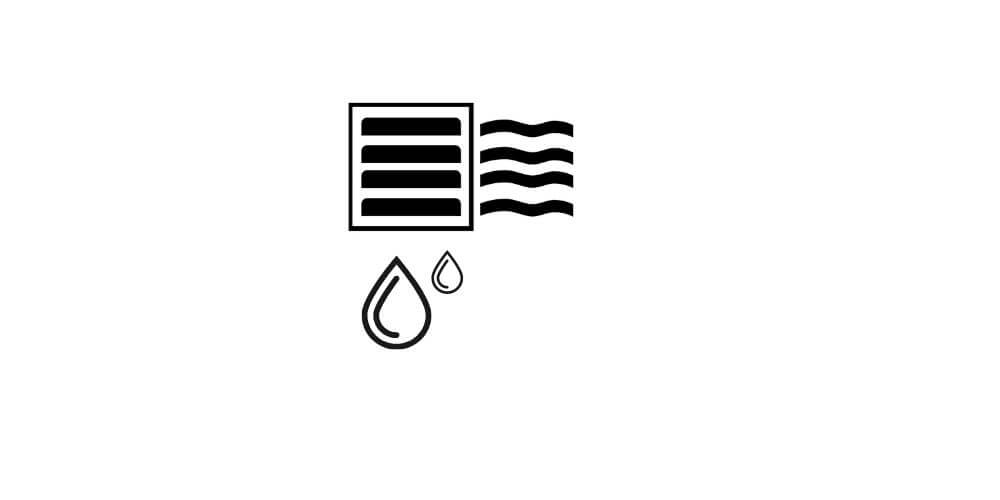Have you ever noticed water dripping from your air vent when it rains? Then this might come as a surprise to you but you’re not alone.

The common cause for when this phenomenon occurs is that there is high humidity and the outdoor temperature drops significantly, which causes condensation to form on the cool surface of your air vent.
There are also several other possible causes for this issue, and in most cases, it’s an easy fix.
So let’s get straight into what might be causing the water to leak from air vents when it rains and how to resolve the issue.
Where Is the Water Coming From?
The first step in resolving this issue is to determine where exactly the water is coming from. If you look closely at the air vent, you should be able to see if there are any large cracks, holes, or gaps that could be allowing water in. If so, sealing these up should fix the problem.
If there are no visible cracks or holes, then the water could be coming into your air vent from outside.
High Humidity
In most cases, water leaking from air vents is caused by high humidity levels outside. When the outdoor temperature drops, condensation can form on the cold surface of your air vent.
The condensation then builds up until eventually it drips down the wall and ends up in your air vent.
To fix this issue, you need to reduce the humidity levels in your home. To do this, you can use a dehumidifier or increase ventilation by opening up windows.
Dampness in the Attic or Crawlspace
If the water is coming from your air vent, it may actually be coming from dampness in the attic or crawlspace.
If this is the case, you will need to inspect these areas for any signs of dampness or water damage. If you find any, you will need to repair the source of the leak and then dry out the area with fans and dehumidifiers.
Clogged Gutters or Downspouts
Another common cause of water leaking from air vents is clogged gutters or downspouts.
If your gutters are clogged with leaves or other debris, water will start to back up and overflow onto your roof and eventually into your vents. To prevent this issue, make sure you clean out your gutters regularly and repair any loose joints or damaged sections.
It may also help to install gutter guards on top of your gutters so that rainwater won’t enter through the vents in the first place.
Faulty Flashing
The flashing around your air vents (the metal sheeting that covers the seams between roofing materials) can also become weakened over time due to exposure to sunlight and precipitation.
This would allow water to enter through gaps in the roofing material and drip down into your house via the vents.
To fix this issue, you’ll need to replace any faulty flashing with new materials, preferably something made out of aluminum or copper for maximum protection against moisture damage.
Damaged Roof
If your roof has sustained any damage due to storms or other extreme weather conditions, then it may be allowing water to seep into your home through the air vents.
If this is the case, then you’ll be better off calling a professional roofing contractor to assess the damage and make the necessary repairs.
Shingles
If your roof shingles have become worn or damaged over time, then water may be able to leak through the gaps in them and into your house.
To repair this issue, you’ll need to replace any damaged shingles with new ones or have them re-sealed with a waterproof sealant.
You should also check for any loose nails or other metal pieces that could be causing water to leak through, and replace those as well.
Final Thoughts
Water leaking from air vents when it rains can be a serious issue if left unresolved for too long.
Fortunately, most of these problems can easily be resolved by sealing up any holes or gaps in your air vent unit with caulk or weatherstripping. You should also inspect your roof, attic, and crawlspace for any signs of water damage or dampness.
If those solutions don’t work for you then it may be necessary to replace your entire air vent unit altogether.
No matter what steps you take though, make sure that any underlying issues such as cracks in your roof or walls are addressed before attempting further repairs. This will help ensure that your home is safe and secure against any potential water damage in the future.

